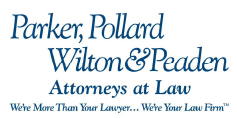Avoiding probate court can save a grieving family the time, money and frustration that come with probating the deceased’s estate. One of the most valuable estate planning tools for avoiding probate court is a revocable living trust. You can protect virtually any type of asset you own from probate costs by establishing a revocable living trust, including retirement accounts, real estate, vehicles, jewelry and heirlooms.
Single trusts can be created for individuals, while joint trusts can be created for married couples, and either can be changed or terminated at any time by their creator(s). Trusts can be created to address a number of matters, from setting up trusts for minor children or special needs beneficiaries to addressing worries about inheritance taxes.
Until a few years ago, an “AB,” or bypass trust, was typically created to give a surviving spouse a life estate interest in the trust. In this arrangement, both spouses leave their property to an irrevocable trust rather than to each other. Because the surviving spouse never technically owns the assets in the trust, those assets would not become part of the surviving spouse’s estate and estate taxes would be avoided or minimized.
Tax exemptions have increased substantially over the past few years, and the amount each spouse can pass free of estate tax is now set at $5.45 million, indexed for inflation. Additionally, there is now a concept called “portability” —this combines each spouse’s individual tax exemption and has largely eliminated the need to segregate spousal funds through an AB trust. In order to take advantage of portability, however, it is necessary to file a federal estate tax return upon the death of the first spouse.
Contacting an estate-planning attorney is the best way to safeguard your assets and ensure that your family’s needs are taken care of after your death. If you have an existing estate plan formed under pre-2013 rules, and/or an existing family trust, it is very important that you review and possibly revise them. You may have a plan that is more complicated than your family needs or, in some instances, has other adverse tax consequences.
